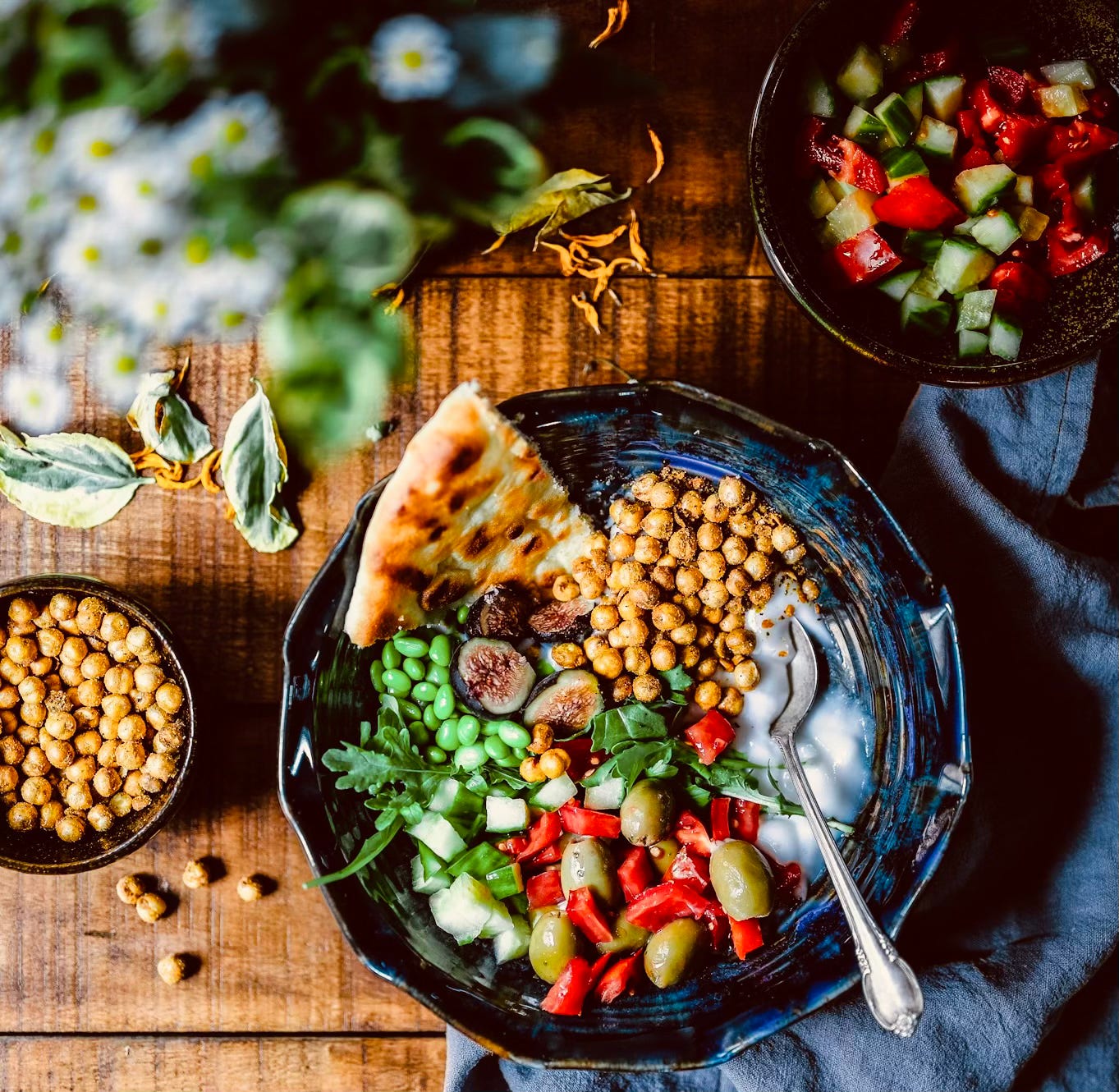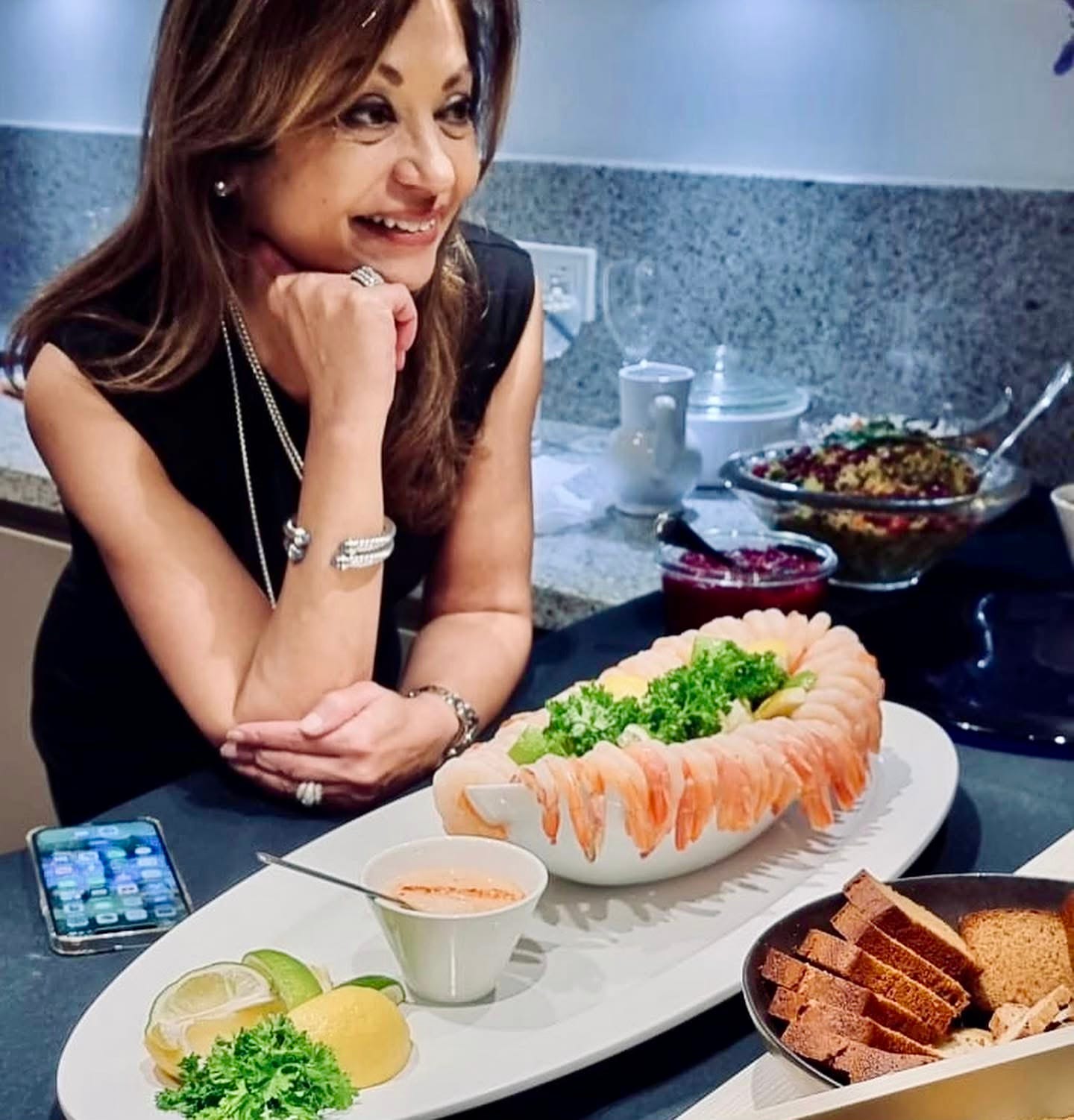The Intimacy of Nourishment
Soft Rituals, Strong Connections
There is no act more intimate than the act of feeding another. From the family table to the grandest dining rooms, every meal extends more than sustenance. It offers understanding, affection and presence.
To prepare food for another is to acknowledge their needs and, at the same time, their place in our lives. In this way, dining becomes one of the oldest and most profound languages of devotion.
To say, without words: I want you to be well. I want you to belong here.
Refined Acts, Timeless Impact
The art of hosting has evolved far beyond the offering of a simple dish. Today’s tables feature layers of invention.
Veloutés infused with unexpected spices, consommés clarified to crystal brilliance.
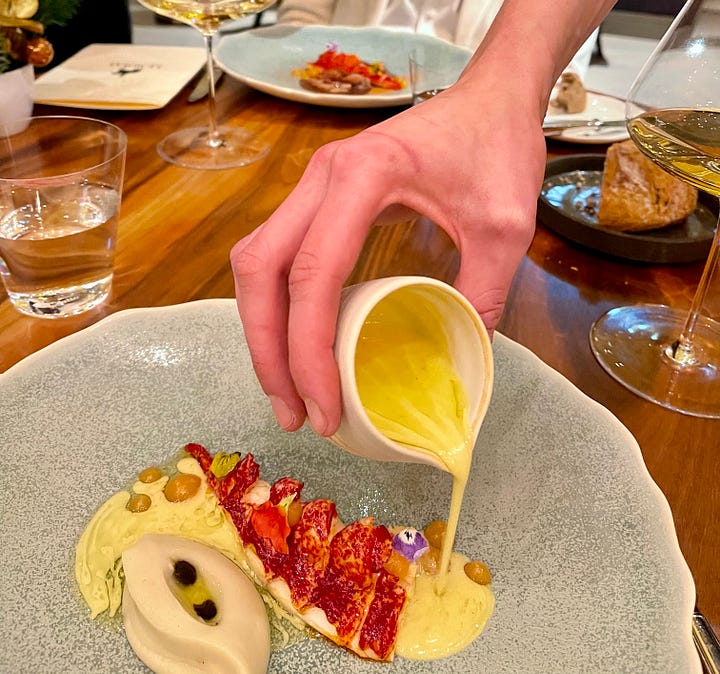
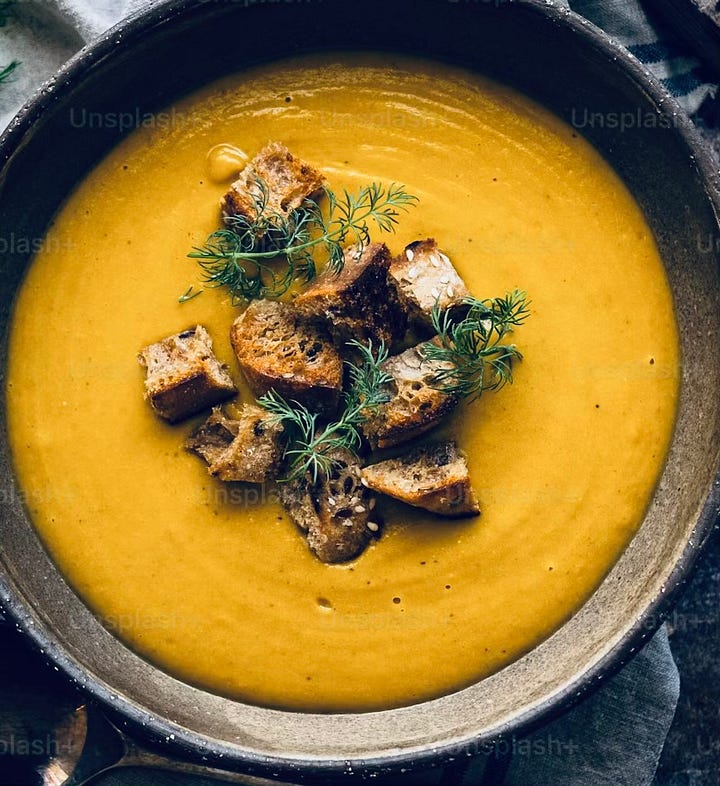
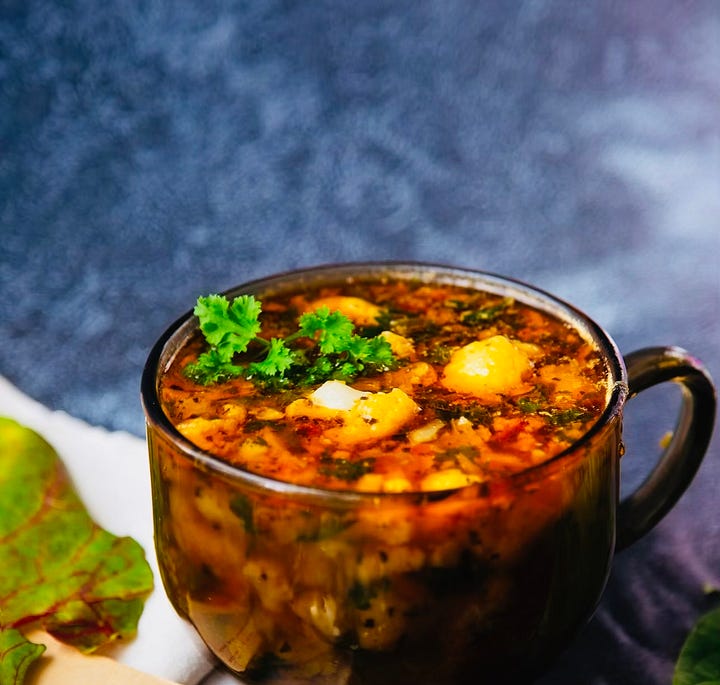
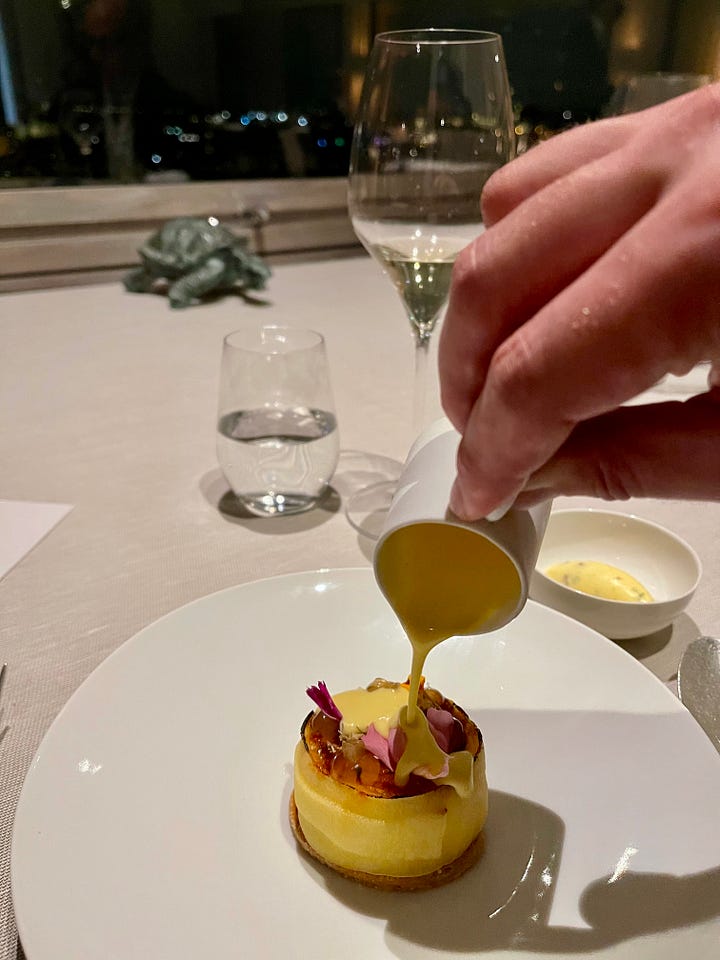
The simplicity of smoked carrots brushed with fine Spanish olive oil, sprinkled with sea salt, and finished with za’atar; it’s thyme, sesame, and sumac echoing the smokiness while balancing the natural sweetness, becomes a vignette of how the humblest root can embody grandeur.
Fermented sauces, drawn from timeless practices, now reappear as bold complements to a sous vide cut or even a singular mushroom creation.
Bread, too, long a symbol of sustenance, finds new expression in elevated bread service.
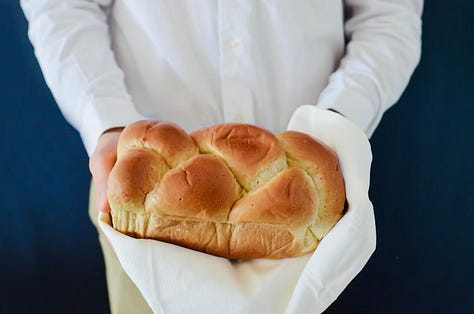
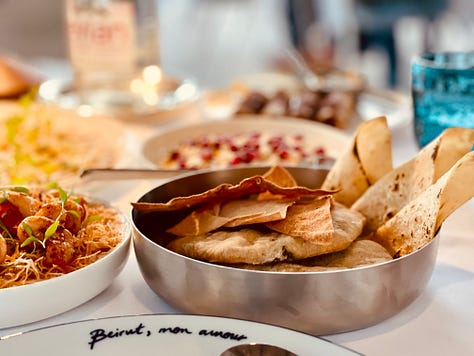
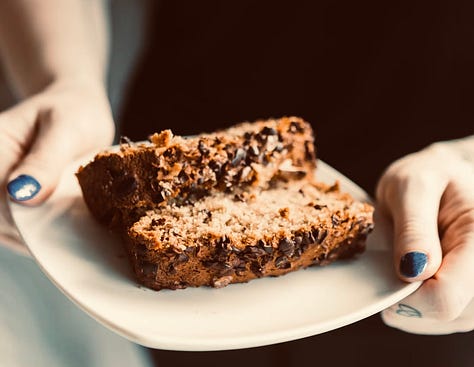
Assessing loaves with subtle characteristics for wine, detailing their bouquet, tactile quality and terroir. A sprouted grain loaf with a caramelized crust, lightly fermented nut-butter brioche, smoked olive-oil rolls, rustic chickpea Farinata/Socca/Chilla, or Cassava flatbreads sliced warm.
Each a contemporary expression where technique, flavor and nutrition converge in thoughtful innovation. Even the simplest artisan bread emphasizes craftsmanship and vitality, reflecting mindful attention at the table.
“True hospitality consists of giving the best of yourself to your guests.” - Eleanor Roosevelt.
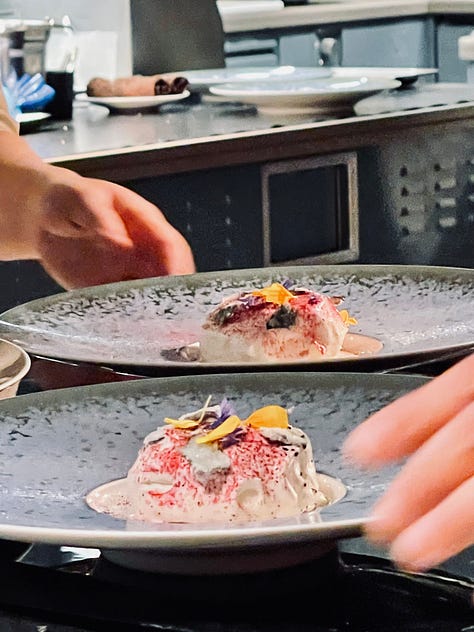
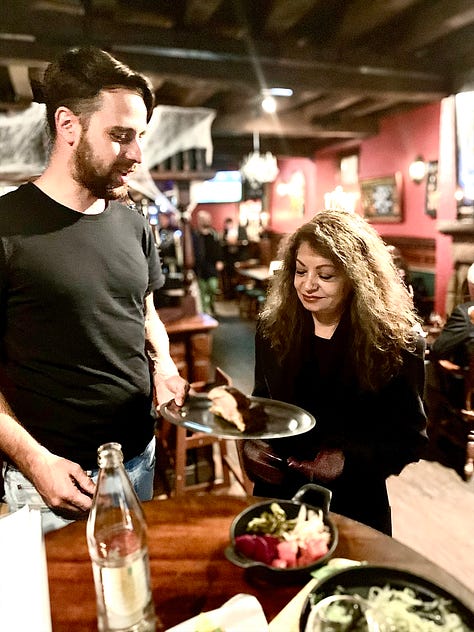
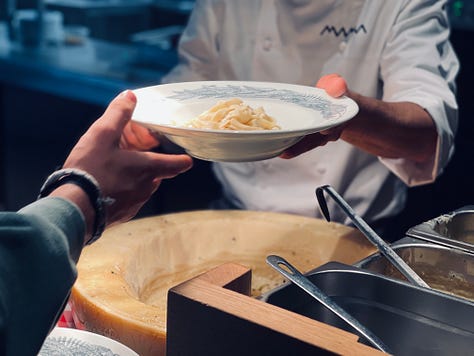
Hospitality Inward, Learning to Host Myself First
When dietary intolerance reshaped the way I approached food, it offered a new lens through which to refine every choice, how I measured, selected and prepared each element in the kitchen.
I practiced hospitality inwardly, to extend the same respect to my own body that I so readily offered to others.
My study of nutrition gave me the knowledge to curate menus even with limitations, to practice regulatory compliance with diligence, and to align my meals with principles of safety and sustainability.
It was here, in this personal apprenticeship, that I discovered the depth of resilience hidden in the smallest of meals. On some mornings it was as simple as a bowl of oatmeal, became grounding. On others a plate of tender greens with a sprinkle of lemon offered balance.
But on days when I longed for texture and crisp, I turned to a pan of chickpeas. There is nothing quite like the sound of spices popping, the crackle of cumin seeds, the warmth of turmeric dusting the air, the tiny bursts of mustard seeds as release their fragrance.
A touch of ginger joins in, sharp and bright at first, then mellowing into something rounder, almost sweet. The toasting sends a golden waft through the kitchen, a sensual and memorable perfume that lingers, as though the spices themselves were guests arriving at the table.
The Circle Closest to Us
Hospitality begins at home, where daily observances shape how we experience belonging.
There is humility, and also devotion, in preparing a separate meal for a loved one while setting a different plate for oneself. Two expressions of regard coexisting at the same board. In these acts, sustenance becomes symbolic.
It shows that tenderness does not always require sameness. It can thrive in parallel paths, where difference is acknowledged without being diminished.
Universality of Attentive Hospitality
Across kitchens and cultures, as I crossed borders, conversations about dietary limitations are met not with hesitation but with curiosity, even enthusiasm.
Together, we spoke of food as medicine, a philosophy I had once embraced in hospital settings, where we used meals as both education and remedy.
The universality of sustenance, understood across cultures and disciplines, is a bridge that connects us through empathy and responsibility.
“Love Language, the epitome of hospitality, inscribed in constancy and articulated in refinement” - Kiran Robinson.
Even in distant kitchens, across continents, I have witnessed this truth come alive.
I am grateful to the many culinarians I have met throughout my journeys, for their generosity of spirit, their willingness to listen, and their eagerness to understand the ever-evolving needs of those they serve.
Their human touch has reminded me that the universality of hospitality lies not only in what is prepared on the plate, but in the benevolence that surrounds it.
The intimacy of nourishment, after all, is never just about food, it is a love language offered with sincerity and received with thanksgiving.



